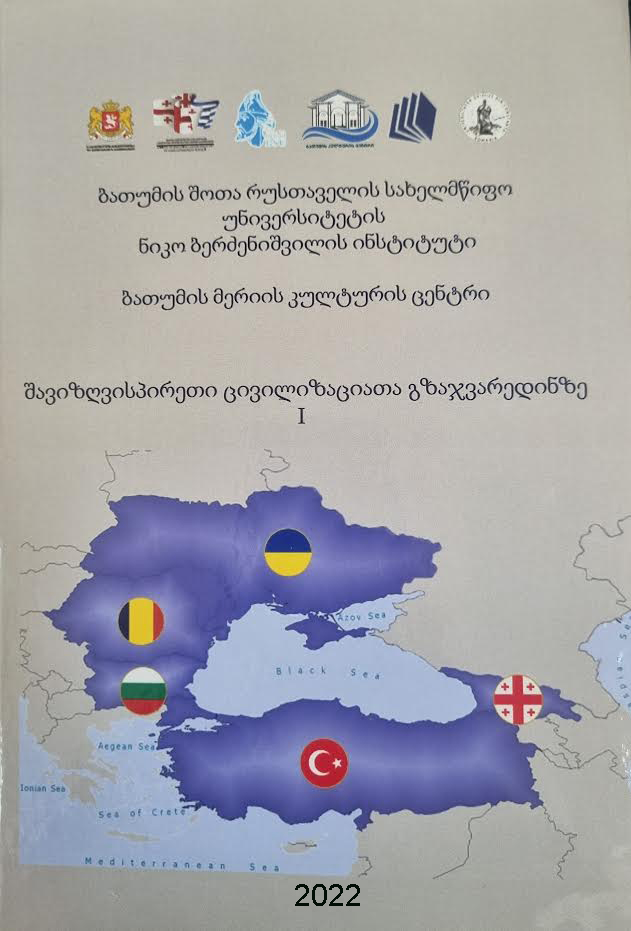Geopolitical Processes at the Turn of the XVIII-XIX Centuries and the Caucasus
DOI:
https://doi.org/10.61671/bsrcc.v1i.7844Keywords:
Caucasus, geopolitics, Georgia, Ottoman Empire, Iran, RussiaAbstract
In the 18th century, the contradictions between the great powers due to dominance in the Caucasus became more intense. Together with traditional rivals - Iran and Ottomans, the strengthened Russian state actively engaged in the struggle for influence in the Caucasus. He conveniently benefited from the goodwill of Transcaucasian peoples, especially Christian Georgians, and used them to realize his interests. Both Caucasian political forces in general and Georgian political forces, in particular, could not properly assess the international situation created at the end of the 18th century and the end of the 19th century, and they still considered Russia to be the only hope to get out of the difficult situation.
This attitude of political units of the Caucasus made it easier for Russia to implement its plans, which resulted in the conquest of Kartli-Kakheti, then the kingdom of Imereti, and then the entire Caucasus at the beginning of the 19th century.
References
ბერძენიშვილი, 1965: – ბერძენიშვილი ნ., საქართველოს ისტორიის საკითხები, წიგნი II, თბილისი, 1965.
ბოცვაძე, 1990: – ბოცვაძე თ., ჩრდილო კავკასიის ხალხები საქართველოს საგარეო პოლიტიკაში (XV-XVIII სს.), თბილისი, 1990.
ბულეიშვილი, 1991: – ბულეიშვილი მ., ქართველი ეკლესიის მსახურები რუსეთ-საქართველოს დიპლომატიურ ურთიერთობაში, თბილისი, 1991.
კვიციანი, 2017: – კვიციანი ჯ., კავკასია, თბილისი, 2017.
სვანიძე, 2007: – სვანიძე მ., თურქეთის ისტორია (1299-2000), თბილისი, 2007.
სოხვაძე, 1996: – სოხვაძე ბ., რუსეთი XVII საუკუნის დასასრულსა და XVIII საუკუნეში, თბილისი, 1996.
ცქიტიშვილი, 1982: – ცქიტიშვილი, გარსევან ჭავჭავაძის სახელმწიფოებრივი მოღვაწეობა, თბილისი, 1982.
Баддели , 2007: – Баддели Дж., Завоевание Кавказа русскими 1720-1860, Москва 2001
Внешняя политика России, 1960: – Внешняя политика России (документы Россииского министерство иностранных дел), т. I, Москва, 1960.
Догаев, 2001: – Догаев В., Большая игра на Кавказе (история и современность), Москва, 2001.
Россия и восток, 2002: – Россия и восток, Санкт-Петербург, 2002.
История России, 1998: – История России, Москва, 1998.
История внешней политики России, 2000: – История внешней политики России, 18 век, Москва, 2000.
История народов северного Кавказа, 1988: – История народов северного Кавказа, Москва, 1988.
История России (1682-1861),1998: – История России (1682-1861), Москва, 1998.
История дипломатий, 1959: – История дипломатий, т. I, Москва, 1959.
История дипломатий ,2005: – История дипломатий , Москва, 2005.
Петросян, 2003: – Петросян Ю., Османская империя, Москва, 2003.














